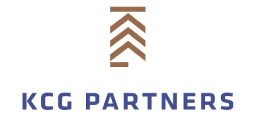Hungary joins global minimum corporate tax agreement, as Mihály Varga, Finance Minister on Hungary announced on 8 October 2021. Mr. Varga highlighted three key points of the deal for Hungary.
(1) The corporate tax in Hungary will remain 9%. Hungary can collect the global tax (difference) through a so-called “targeted solution”.
(2) Real economic activity should not be taxed. This means that corporate assets and corporate payroll should be deductible from the taxable amount using a special calculation method, implying that companies that do not engage in fictitious activities but in real activities involving the actual payment of assets and payroll should be able to benefit from this reduction.
(3) A transitional period of 10 years will apply with a special rate, and for 10 years the tax rate will be calculated on a reduced tax return, with a reduced tax calculation.
The major reform of the international tax system finalised under the aegis of OECD is set to ensure that Multinational Enterprises (MNEs) will be subject to a minimum 15% tax rate from 2023. The new minimum tax rate will apply to companies with revenue above EUR 750 million and is estimated to generate around USD 150 billion in additional global tax revenues annually.
The deal, however, aims more than just setting a global rate, but also to provide new rules for a digital era. Under the agreement, MNEs, including technology giants, will be required to pay taxes in countries where their goods or services are sold, even if they have no physical presence there, effectively reallocating more than USD 125 billion of profits to market jurisdictions each year. The agreement comes as a successful end to a long negotiation between the parties involved, with Hungary initially strongly opposing of numerous points. Now with Hungary, alongside with Estonia and Ireland having joined the agreement, it is now supported by all OECD and G20 countries.
Critical details remain to be worked out. OECD is now aiming for countries to sign a multilateral convention during 2022, with effective implementation in 2023. The detailed timeline and provisions for the various jurisdictions, including the specific measures in Hungary on “target solution” and the transitional period, are yet to follow.
By Balint Zsoldos, Head of Tax, KCG Partners Law Firm


